Ramadan is a time for reflection, patience, and spiritual discipline. Although people like to focus on the empty-stomach aspect of Ramadan, this month is also all about mindfulness. While this manifests differently for everyone, one of my Ramadan goals this year was to read only Muslim voices for the entire holy month.
Because of my busy work schedule, I didn’t read as many books as I would have liked this month, but my Ramadan Reads list was curated to be as diverse as possible. These authors engaged with their Muslim identities in many different ways. Their faith and spirituality were incorporated into their works in many different ways and to varying degrees. I read memoir, literary fiction, historical fiction, contemporary adult, young adult, fantasy/science fiction, and poetry. The authors were Turkish, Moroccan, Pakistani American, Black American, and Somali American.
I had too-optimistically put a dozen books on my Ramadan Reads list, but only ended up reading five. Perhaps it was maktub (fate), because five is such an important number in Islam. Five pillars. Five prayers every day. Five principles of Zakat. The khamsa or the Hand of Fatima, with its symbolic five fingers.
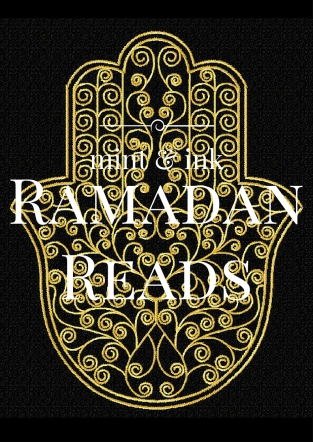
The Forty Rules of Love by Elif Shafak
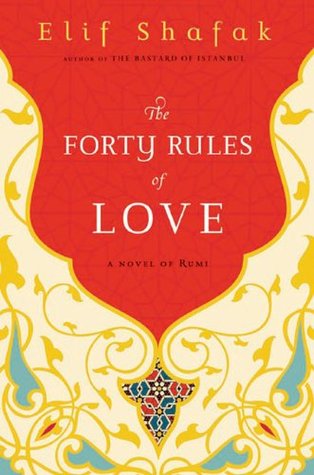 Julie: On the recommendation of several trusted sources, I began Ramadan with Shafak’s melodic novel. My love affair with Sufi poetry began when my university library supervisor, a Persian woman, gifted me a book of Hafiz poems. After that, I could never drink enough ghazals. I thirsted for Hafiz and Rumi and more. I can’t believe I’d never picked up a Shafak work until this year. Magical and universal and particular all at once. I was far more into the story of Rumi and Shams and the people they encounter than I was the story of Ella. Without giving spoilers, I was particularly disappointed by Aziz Zahara. Ultimately though, Shafak tells a story of a mythical figure that is very human and very moving.
Julie: On the recommendation of several trusted sources, I began Ramadan with Shafak’s melodic novel. My love affair with Sufi poetry began when my university library supervisor, a Persian woman, gifted me a book of Hafiz poems. After that, I could never drink enough ghazals. I thirsted for Hafiz and Rumi and more. I can’t believe I’d never picked up a Shafak work until this year. Magical and universal and particular all at once. I was far more into the story of Rumi and Shams and the people they encounter than I was the story of Ella. Without giving spoilers, I was particularly disappointed by Aziz Zahara. Ultimately though, Shafak tells a story of a mythical figure that is very human and very moving.
Official book synopsis: In this lyrical, exuberant follow-up to her 2007 novel, The Bastard of Istanbul, acclaimed Turkish author Elif Shafak unfolds two tantalizing parallel narratives—one contemporary and the other set in the thirteenth century, when Rumi encountered his spiritual mentor, the whirling dervish known as Shams of Tabriz—that together incarnate the poet’s timeless message of love.
Ella Rubenstein is forty years old and unhappily married when she takes a job as a reader for a literary agent. Her first assignment is to read and report on Sweet Blasphemy, a novel written by a man named Aziz Zahara. Ella is mesmerized by his tale of Shams’s search for Rumi and the dervish’s role in transforming the successful but unhappy cleric into a committed mystic, passionate poet, and advocate of love. She is also taken with Shams’s lessons, or rules, that offer insight into an ancient philosophy based on the unity of all people and religions, and the presence of love in each and every one of us. As she reads on, she realizes that Rumi’s story mirrors her own and that Zahara—like Shams—has come to set her free.
Secret Son by Laila Lalami
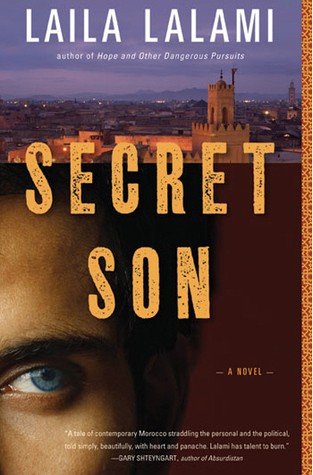 Julie: This is my third Laila Lalami book—and the second one set in modern Morocco. As an outsider living here, it’s a curious feeling reading Lalami’s work… It’s at once very familiar and very strange. The same settled/unsettling fluttering I get when I look outside my window. Intimate yet separate. Home away from home. I recommend every Lalami book highly.
Julie: This is my third Laila Lalami book—and the second one set in modern Morocco. As an outsider living here, it’s a curious feeling reading Lalami’s work… It’s at once very familiar and very strange. The same settled/unsettling fluttering I get when I look outside my window. Intimate yet separate. Home away from home. I recommend every Lalami book highly.
Official book synopsis: Raised by his mother in a one-room house in the slums of Casablanca, Youssef El Mekki has always had big dreams of living another life in another world. Suddenly his dreams are within reach when he discovers that his father—whom he’d been led to believe was dead—is very much alive. A wealthy businessman, he seems eager to give his son a new start. Youssef leaves his mother behind to live a life of luxury, until a reversal of fortune sends him back to the streets and his childhood friends. Trapped once again by his class and painfully aware of the limitations of his prospects, he becomes easy prey for a fringe Islamic group.
In the spirit of The Inheritance of Loss and The Reluctant Fundamentalist, Laila Lalami’s debut novel looks at the struggle for identity, the need for love and family, and the desperation that grips ordinary lives in a world divided by class, politics, and religion.
An Ember in the Ashes by Sabaa Tahir
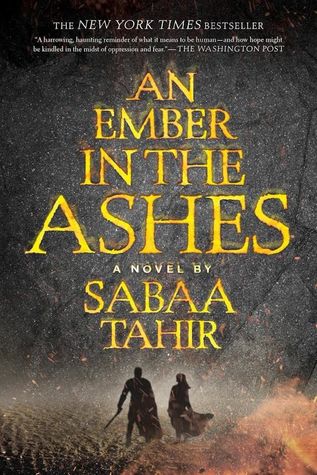
Julie: Young Adult Fantasy is a genre that will forever be close to my heart. And YA fantasy that is not whitewashed? Sign me up, always. Tahir’s novel is fast-paced, thrilling, and unique. She takes a well-worn genre and makes it exciting, which is an incredibly difficult task. And as someone who studied classics in university, I was very into the Roman Empire allusions. I can’t wait to get my hands on the sequel, A Torch Against the Night!
Official book synopsis: Laia is a slave. Elias is a soldier. Neither is free.
Under the Martial Empire, defiance is met with death. Those who do not vow their blood and bodies to the Emperor risk the execution of their loved ones and the destruction of all they hold dear.
It is in this brutal world, inspired by ancient Rome, that Laia lives with her grandparents and older brother. The family ekes out an existence in the Empire’s impoverished backstreets. They do not challenge the Empire. They’ve seen what happens to those who do.
But when Laia’s brother is arrested for treason, Laia is forced to make a decision. In exchange for help from rebels who promise to rescue her brother, she will risk her life to spy for them from within the Empire’s greatest military academy.
There, Laia meets Elias, the school’s finest soldier—and secretly, its most unwilling. Elias wants only to be free of the tyranny he’s being trained to enforce. He and Laia will soon realize that their destinies are intertwined—and that their choices will change the fate of the Empire itself.
The Autobiography of Malcolm X
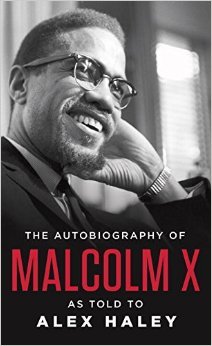
Julie: Malcolm X’s autobiography has on my list for a long time, but kept putting it off. But a Ramadan Reads challenge was the perfect time to learn more about one of the most famous American Muslims. His famous charisma absolutely shows, even on a static page. I think this is a required read for anyone who is engaged with social justice in the United States. It is fascinating and revealing—and like always, it’s the best choice to learn from #OwnVoices on any topic.
Official book synopsis: From hustling, drug addiction and armed violence in America’s black ghettos Malcolm X turned, in a dramatic prison conversion, to the puritanical fervour of the Black Muslims. As their spokesman he became identified in the white press as a terrifying teacher of race hatred; but to his direct audience, the oppressed American blacks, he brought hope and self-respect. This autobiography (written with Alex Haley) reveals his quick-witted integrity, usually obscured by batteries of frenzied headlines, and the fierce idealism which led him to reject both liberal hypocrisies and black racialism.
Vilified by his critics as an anti-white demagogue, Malcolm X gave a voice to unheard African-Americans, bringing them pride, hope and fearlessness, and remains an inspirational and controversial figure.
Nejma by Nayyirah Waheed
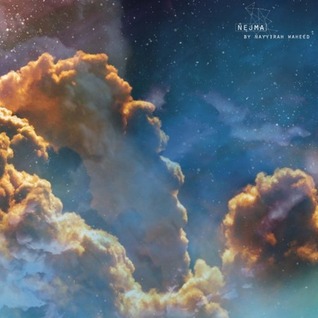 Julie: What an absolutely perfect way to end my Ramadan Reads list. My core is twined with the stars and the roots of Waheed’s words. It is bound and boundless. Irrefutably tied to the experiences of people of color and euphonious as fuck. Every line, every lilt, every letter-tilt. All magic. I first read salt. in 2013 when it came out, and it changed my life. Nejma was another soul-altering experience.
Julie: What an absolutely perfect way to end my Ramadan Reads list. My core is twined with the stars and the roots of Waheed’s words. It is bound and boundless. Irrefutably tied to the experiences of people of color and euphonious as fuck. Every line, every lilt, every letter-tilt. All magic. I first read salt. in 2013 when it came out, and it changed my life. Nejma was another soul-altering experience.
Nayyirah Waheed on her work: “appreciate. from afar. from behind the boundary. it is that simple. people of colors’ cultures. realities. lives. histories. are sacred. and rife with boundaries. as all sacred things are. decentralize and simply appreciate. the assertion that i do not want non POC engaging with my work is false. engagement is fine. it is the defining of what engagement means. which becomes the issue. what i do not want is non POC appropriating my work. my culture. my experiences. my heritage. my people. and i will not allow salt. or nejma. or for any of my work. to be whitewashed. exploited. exoticized. or to become an educational manual on who we are. these are my boundaries. if anyone is unclear. i wrote salt. and nejma. i write. for the health. the breath. the bone. and the flower. of people of color. and so i simply assert that my work be appreciated and respected and honored as someone else’s truth. when you engage a POC work. the first thought should be about what it means to that POC. what it might mean to their communities. their cultures. their histories. that should be processed. first. the work in the context of themselves and their world. then. and only then. can your next thoughts be informed properly. then. and only then. when your being. comes into the interplay. from behind the boundary of this person first. and you second. can your perspective be honest. and aligned correctly. decentralizing. involves removing yourself from the center. and appreciating someone else’s reality. someone else’s art. as it is. for what it is. leaving alone what you can not touch. or access. and not engaging for what it can give you. what you can take from it. how you can alter it to serve you. but engaging as an honoring and appreciating. of accepting it. for exactly what it is. exactly as it is. exactly who it is. ”
Of course, I’ll still be reading Muslim voices for the rest of the year as well! I’m still eager to finish the original Ramadan Reads list I made. As a non-Muslim who has lived in a Muslim country for two years now, I believe it’s my responsibility to be conscious and respectful of my neighbors. One of the best ways is to engage in #OwnVoices works.
A few days ago, on Lailatul Qadr, the Night of Power, I was gifted a English language Quran, which is a sign that I should start reading it more thoroughly for understanding. Lailatul Qadr is usually celebrated on the 27th night of Ramadan, and it is the night that Muslims believe the Quran was revealed.
Well, I’m off to a full day of feasting and merry-making! Wishing everyone a lovely day. Eid Mubarak!
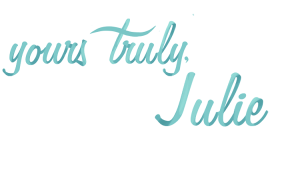
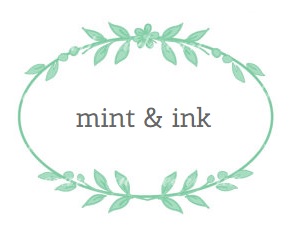
I teach basic composition at the college level, and I’ve required Malcolm X every semester for years. Some students are blown away in a positive, meaningful way. Some students are so very stubborn and believe something is being forced on them, which always bums me out.
LikeLike
That’s rad! Thank goodness for teachers like you. No matter what, I’m sure those students got at least something out of it. 🙂 Keep on doing what you’re doing!
LikeLiked by 1 person
Thank you for the encouragement. Some semester I get a crop of students who are very conservative and closed-minded due to now being exposed to the ideas of people who don’t agree with them, and it’s always those semesters that I think, “I’ll never teach Malcolm X again.”
LikeLike
I’d love to read more of Lalami’s work. The Moor’s Account was excellent and a book set in Modern Morocco is something I must read because I’ve never read such a book before.
Happy to see Ember in the Ashes in your list. I hope to read it soon and am also very excited to see a YA Fantasy that isn’t whitewashed and actually written by a person of color.
LikeLike
I think you’d enjoy Lalami books and Ember in the Ashes! I know your TBR list is huge (LOL) but I look forward to your thoughts on them if you get the chance to read ’em. 🙂
LikeLiked by 1 person
Oh, I plan to read Ember in the Ashes this Summer!
LikeLike
Eid Mubarak! That’s a fantastic list, thanks so much for posting! Love the inclusion of a Black Muslim😃 I have Lalami in my tbr and Shafak sounds great as well.
LikeLike
Yay, thanks, Bina! ❤ Two Black Muslims, in fact. 😉 And many more on my upcoming TBR list. I also just realized that I had 4 women writers and 1 man writer, which I'm proud of, even if it was inadvertent! Haha.
LikeLiked by 1 person
Yay can’t wait to get a peek at your tbr list! 🙂 Heh that is a good ratio!
LikeLiked by 1 person
Great list, I am one of the few who did not enjoy Elif Shafak’s forty rules of love. I am eager to read Sabaa Taahir’s work. Have heard only good things about it.
Eid Mubarak
LikeLike
Can I ask why you didn’t enjoy it? 🙂 I was excited to read Tahir too! Pretty much every book on this list had been recommended to me SEVERAL times before I finally read them.
LikeLike